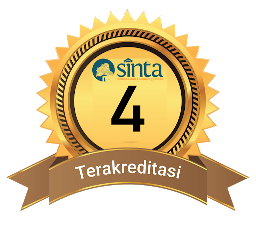Analysis of Factors Causing Online Learning Difficulties in SMAN 1 Dompu
DOI:
10.29303/cep.v7i1.3719Published:
2024-05-31Issue:
Vol. 7 No. 1 (2024): Edisi Mei 2024Keywords:
Online learning, students, SMAN 1 DompuArticles
Downloads
How to Cite
Abstract
This study aims to find out what are the factors that cause online learning difficulties felt by students of SMA Negeri 1 Dompu. This type of research is a descriptive of qualitative research. The research population was 1006 students. The sampling technique was carried out using random sampling. Data collection uses a questionnaire that is empirically valid and reliable.. The technical analysis of the data used is descriptive statistics with percentages using Microsoft Excel. The results showed that online learning difficulties based on students' motivation factors were obtained 35%, students' learning interest factors were obtained 36%, students' family factors were obtained 43%, technical/network constraints factors were obtained 41% and students online learning implementation factors were obtained 42%. Based on the results of this study, it can be concluded that the factors causing online learning difficulties that are most felt by students in a row are family circumstances, the implementation of online learning, technical/network constraints, interest in learning, and finally learning motivation.
References
Idrus, Syarifah Wahidah., Muti’ah., R. Rahmawati. 2021. “Analisis Proses Pembelajaran Daring Selama Pandemi Covid-19 Pada Mahasiswa Program Studi Pendidikan Kimia FKIP UNRAM”. Jurnal Pendidikan dan Ilmu Sains. 3(1):139-148.
Emda, Amna. 2018. “Kedudukan Motivasi Belajar Siswa Dalam Pembelajaran”. Jurnal Lantanida. 5(2) :172-182.
Handayani, Lina. 2020. “ Keuntungan, Kendala dan Solusi Pembelajaran Online Selama Pandemi Covid-19 : Studi Eksploratif di SMPN 3 Bae Kudus “. Jurnal Industrial Engineering and Management Research (JIEMAR). 1(2) : 15-23.
http://kuota-belajar.kemendikbud.go.id/. September 2020
Kemendikbud. (2020). Surat Edaran Jendral No. 15 Tahun 2020. 09, 1–12.
Umar, Munirwan. 2015. “Peranan Orang Tua Dalam Peningkatan Prestasi Belajar anak”. Jurnal Ilmiah Edukasi. 1 (1) : 20 – 28.
Wachid Palguna Bayu sena. 2020. Analisis Kesulitan Siswa Dalam Pembelajaran
Daring Materi Statistika Mata Pelajaran Matematika Pada MTs Negeri Di Grobogan. Tadris Matematika. Fakultas Tarbiyah dan Ilmu Keguruan. Universitas Institut Agama Islam Negeri (IAIN) Salatiga.
Yunitasari, Ria & Umi Hanifah. 2020. “Pengaruh Pembelajaran Daring Terhadap Minat Belajar Siswa Pada Masa COVID-19”. Jurnal Ilmu Pendidikan. 2(3) : 232-243
Author Biographies
khurfatul jannah, Universitas Mataram
Muti’ah Muti’ah, Program Studi Pendidikan Kimia, Universitas Mataram. Mataram, Indonesia
Syarifa Wahidah Al Idrus, Program Studi Pendidikan Kimia, Universitas Mataram. Mataram, Indonesia
License
Copyright (c) 2024 khurfatul jannah, Muti’ah Muti’ah, Syarifa Wahidah Al Idrus

This work is licensed under a Creative Commons Attribution-ShareAlike 4.0 International License.
Authors who publish with Chemistry Education Practice agree to the following terms:
- Authors retain copyright and grant the journal right of first publication with the work simultaneously licensed under a Creative Commons Attribution License 4.0 International License (CC-BY-SA License). This license allows authors to use all articles, data sets, graphics, and appendices in data mining applications, search engines, web sites, blogs, and other platforms by providing an appropriate reference. The journal allows the author(s) to hold the copyright without restrictions and will retain publishing rights without restrictions.
- Authors are able to enter into separate, additional contractual arrangements for the non-exclusive distribution of the journal's published version of the work (e.g., post it to an institutional repository or publish it in a book), with an acknowledgement of its initial publication in Chemistry Education Practice.
- Authors are permitted and encouraged to post their work online (e.g., in institutional repositories or on their website) prior to and during the submission process, as it can lead to productive exchanges, as well as earlier and greater citation of published work (See The Effect of Open Access).






